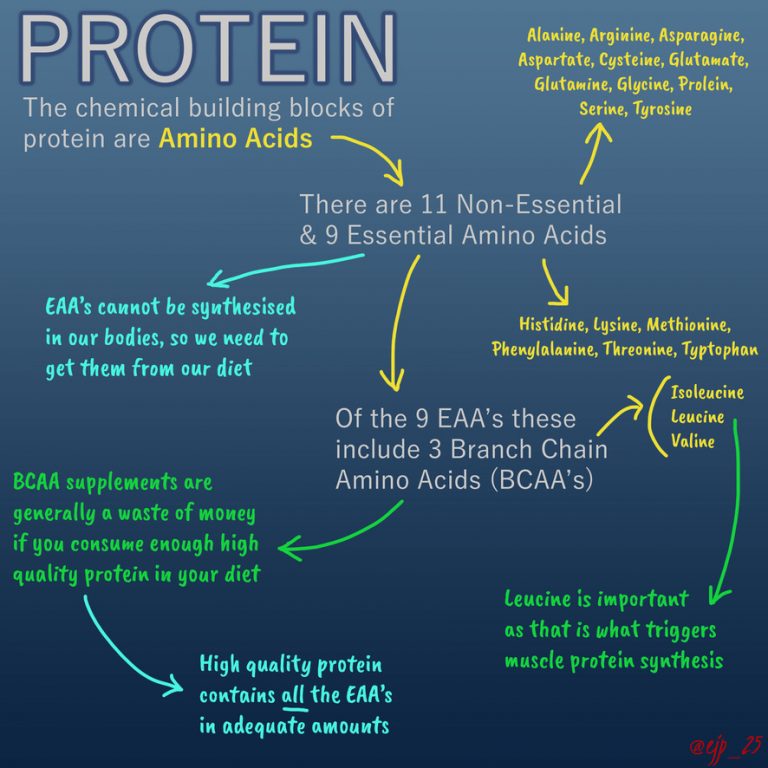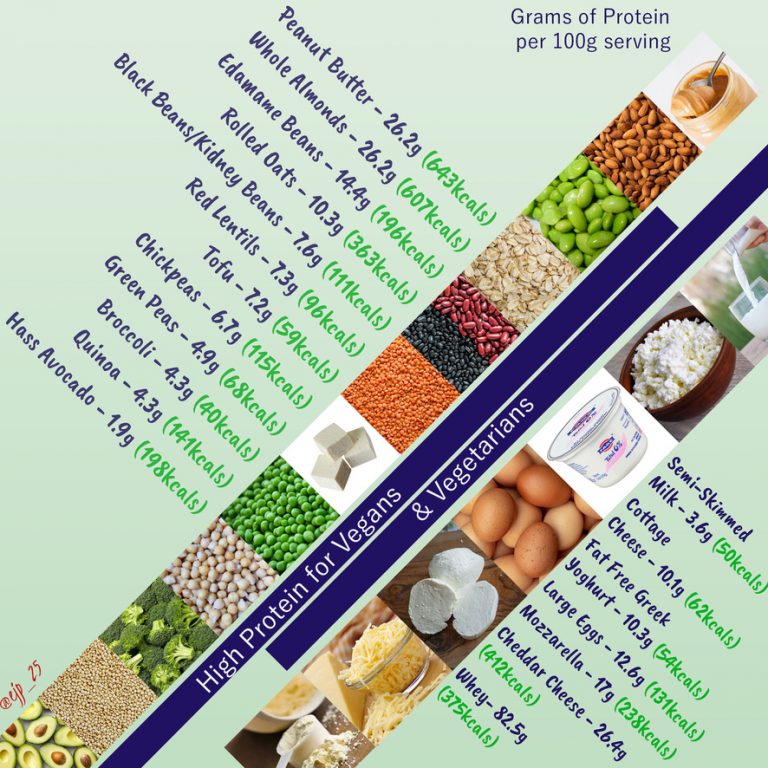Ever hear when people say that certain foods contain “high quality protein”? Well, this is because not all protein is the same. Different foods are either complete or incomplete protein sources. Complete sources contain adequate amounts of all of the Essential Amino Acids (EAAs), which we have to get from our diet as the body can’t synthesise them on its own.
Generally animal products are complete sources, and plants are deficient in at least one EAA. For vegetarians dairy (incl. Whey) and eggs provide high quality protein. Vegans may need to consume higher amounts to compensate for the lower quality protein. You can also combine sources to get the full EAA profile (for example legumes are high in leucine, but grains are low). The other consideration when checking your protein intake is to look at how much of something you need to eat. For example peanut butter contains ~27g of protein per 100g, but if you had that much (and even as lover of peanut butter that is a lot!) it is 643 calories!
Depending on your goal (health, performance, weight loss etc) how much protein is optimal for you will vary. There are also lots of health benefits from eating more plants. Including vegan protein powders can help supplement your diet. It takes a bit more work but you can meet your nutritional needs and have a complete diet without including animal products. However, they do remain as easier way to get more protein for less calories.
(Reposted from Instagram)



